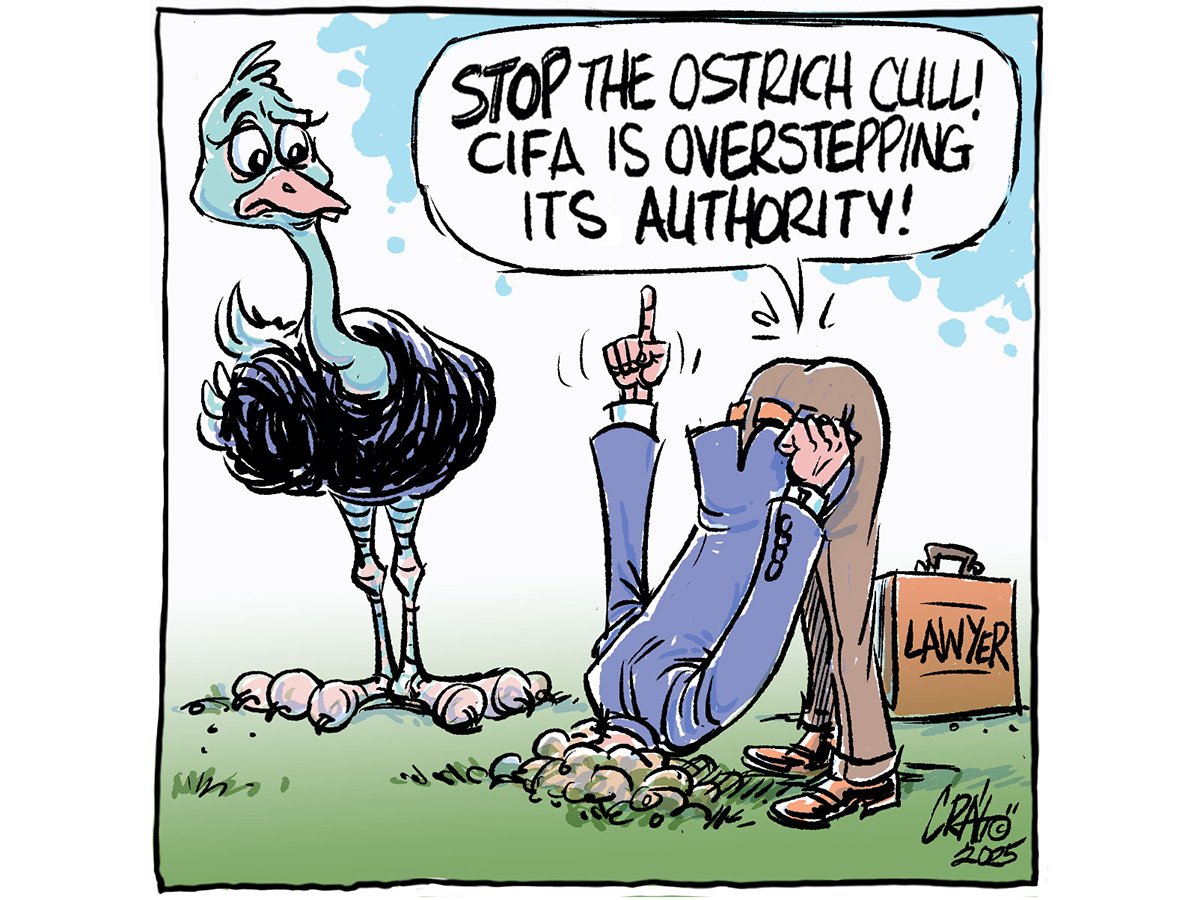Canadian livestock producers should be concerned by how an ostrich farm in British Columbia is using crowd funding to help it defy a Canadian Food Inspection Agency order to destroy more than 300 ostriches.
Last December, a dangerous variant of avian flu was detected at Universal Ostrich Farms in Edgewood, B.C., after an anonymous tip reported multiple ostrich deaths.
The CFIA ordered the entire flock to be culled in accordance with its stamping-out approach to control dangerous animal diseases, including highly pathogenic avian influenza.
Read Also

Rural communities can be a fishbowl for politicians, reporter
Western Producer reporter draws comparisons between urban and rural journalism and governance
The farm owners challenged the cull order in court, and the Supreme Court of Canada granted an interim stay to allow for legal review.
At least three crowd-funding campaigns were created to help the farm resist CFIA’s order to cull the birds, raising more than $290,000.
One of the campaigns boasts of the international support it is receiving, and that “Big Pharma” is working with the CFIA to prevent the development of natural antibodies.
This alleged conspiracy also includes the World Organization of Animal Health, the World Health Organization and the United Nations biosecurity agency, according to the fundraising campaign.
Another crowd-funding campaign claims the farm no longer sells meat or products for human consumption because it operates as a research facility focused on natural immunity and antibody production.
The research facility claim doesn’t hold water.
There are no controls from wild birds that come and go from the site, no description of how antibody production would be monitored or utilized, and there are no indications that actual researchers or scientists are working with the farm.
How this alleged research will help pay the bills is also unclear, and this farm has a lot of bills to pay.
The farm’s creditors are hoping the CFIA will help them recoup hundreds of thousands of dollars in the event of a cull.
A lawyer for one of the farm’s creditors that won a $140,000 judgment said the only assets that can be levied or taxed in this case are two-legged animals.
These ostriches’ days were numbered, even before avian flu entered the scene.
The CFIA’s stamping out program is not perfect. There are likely times when highly involved interventions could prevent diseases from spreading, and some animals could be spared. There are protocols for assessing when those exceptions can be made.
But most farms, the CFIA and the sector in general do not have the resources to intervene at such a granular level for every disease outbreak.
Neither Universal Ostrich Farms nor the international supporters of these crowd funding campaigns have to worry about maintaining access to international markets, but most Canadian livestock producers do.
Of note in this mess is the silence of Canadian livestock organizations.
Keeping one’s head down is an understandable strategy in today’s social media environment, especially when it comes to topics such as herd immunity and vaccines.
But the CFIA’s stamping out program is a critical tool that the livestock sector relies on to protect both markets and animals on farms that haven’t been hit by a specific disease.
If Canadian livestock producers and the associations that represent them want to keep the stamping-out program as a tool that protects their industry, they need to stand up for it.
This may be through taking intervenor status in court cases or by helping to educate the public about this important tool.
In this day and age, nothing should be taken for granted.
Karen Briere, Bruce Dyck, Robin Booker, Paul Yanko and Laura Rance collaborate in the writing of Western Producer editorials.















